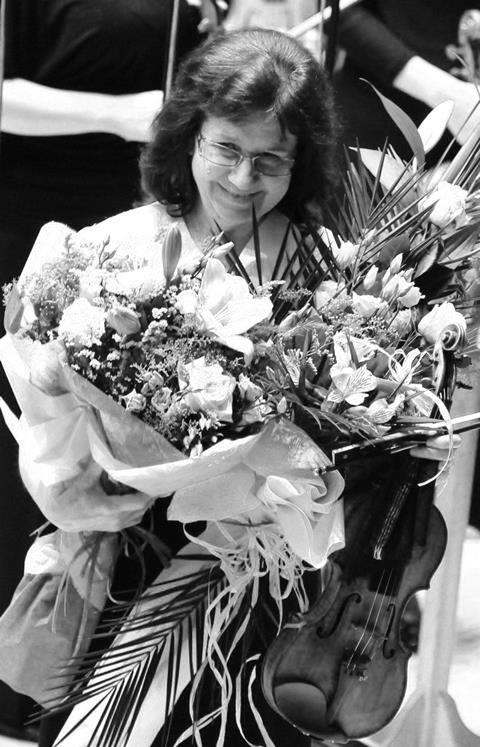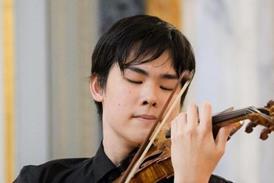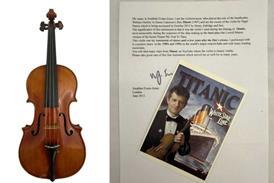The Bulgarian violinist, who enjoyed success at the Carl Flesch and Queen Elisabeth competitions, died on 29 September 2024, aged 79

Stoika Milanova was born in Plovdiv, Bulgaria on 5 August 1945 into a musical family; her father Trendafil Milanov was a violinist and violin teacher who co-founded a music school in Plovdiv, as well as heading a music school in Sofia. Milanova’s older sister Dora was a pianist.
Milanova initially began her violin studies with her father, who established the Milanov Method of teaching based on his experiences of teacher his daughter. She went on to pursue further education at the State Academy of Music in Sofia, followed by the State Tchaikovsky Conservatory in Moscow from 1964 to 1969, where she was a student of David Oistrakh.
Milanova enjoyed competition success, winning the gold medal of the 8th World Festival of Youth and Students in Helsinki in 1962 and second prize at the Queen Elisabeth Competition in Brussels in 1967, ahead of Gidon Kremer. She won the Carl Flesch International Violin Competition in London in 1970 and made her London debut that year, later appearing as a soloist with major orchestras in the UK and the rest of Europe. This included performances at the BBC Proms, including the Mendelssohn Violin Concerto with the BBC Symphony Orchestra and Sir Colin Davis in 1971, and two further appearances in 1972 and 1973 with Sir Andrew Davis and James Lockhart respectively.
Internationally, she performed throughout Japan, Hong Kong, Australia, the United States and Canada, giving recitals well into the mid-2010s. She collaborated with pianists Radu Lupu and Malcolm Frager, as well as her sister Dora, and her violinist daughter Yova from the 1980s. Her recording of Prokofiev’s violin concertos won the Grand Prix du Disque from the Académie Charles Cros.
As an educator, Milanova taught at the State Conservatory of Venezuela from 2005 to 2010 and in 2016, was a professor and chair of violin at the State Academy of Music in Sofia. She gave masterclasses in Venezuela and various European cities, and also passed on her father’s teaching method to educators in Bulgaria and Venezuela.
Milanova performed on the Guarneri del Gesù ’Consolo’ violin, dated 1733.
Tributes to the late violinist flowed on social media.
The Milanov Method’s Facebook page stated: ’The world has lost a giant of classical music, but her legacy will live on through her recordings, students, and the indelible mark she left on the art of violin performance.’
Concertmaster of the Royal Concertgebouw Orchestra, Vesko Eschkenazy, described Milanova as a ’violinist and musician of international greatness, who influenced the Bulgarian violin and performing school in a magnificent way. A huge performing talent that will remain after her.’
Read: Obituary: Primrose viola protégé Yizhak Schotten (1943-2024)
Watch: David and Igor Oistrakh perform Prokofiev Sonata for two violins
The number one source for playing and teaching books, guides, CDs, calendars and back issues of the magazine.
In The Best of Technique you’ll discover the top playing tips of the world’s leading string players and teachers. It’s packed full of exercises for students, plus examples from the standard repertoire to show you how to integrate the technique into your playing.
The Strad’s Masterclass series brings together the finest string players with some of the greatest string works ever written. Always one of our most popular sections, Masterclass has been an invaluable aid to aspiring soloists, chamber musicians and string teachers since the 1990s.
The Canada Council of the Arts’ Musical Instrument Bank is 40 years old in 2025. This year’s calendar celebrates some its treasures, including four instruments by Antonio Stradivari and priceless works by Montagnana, Gagliano, Pressenda and David Tecchler.






































No comments yet